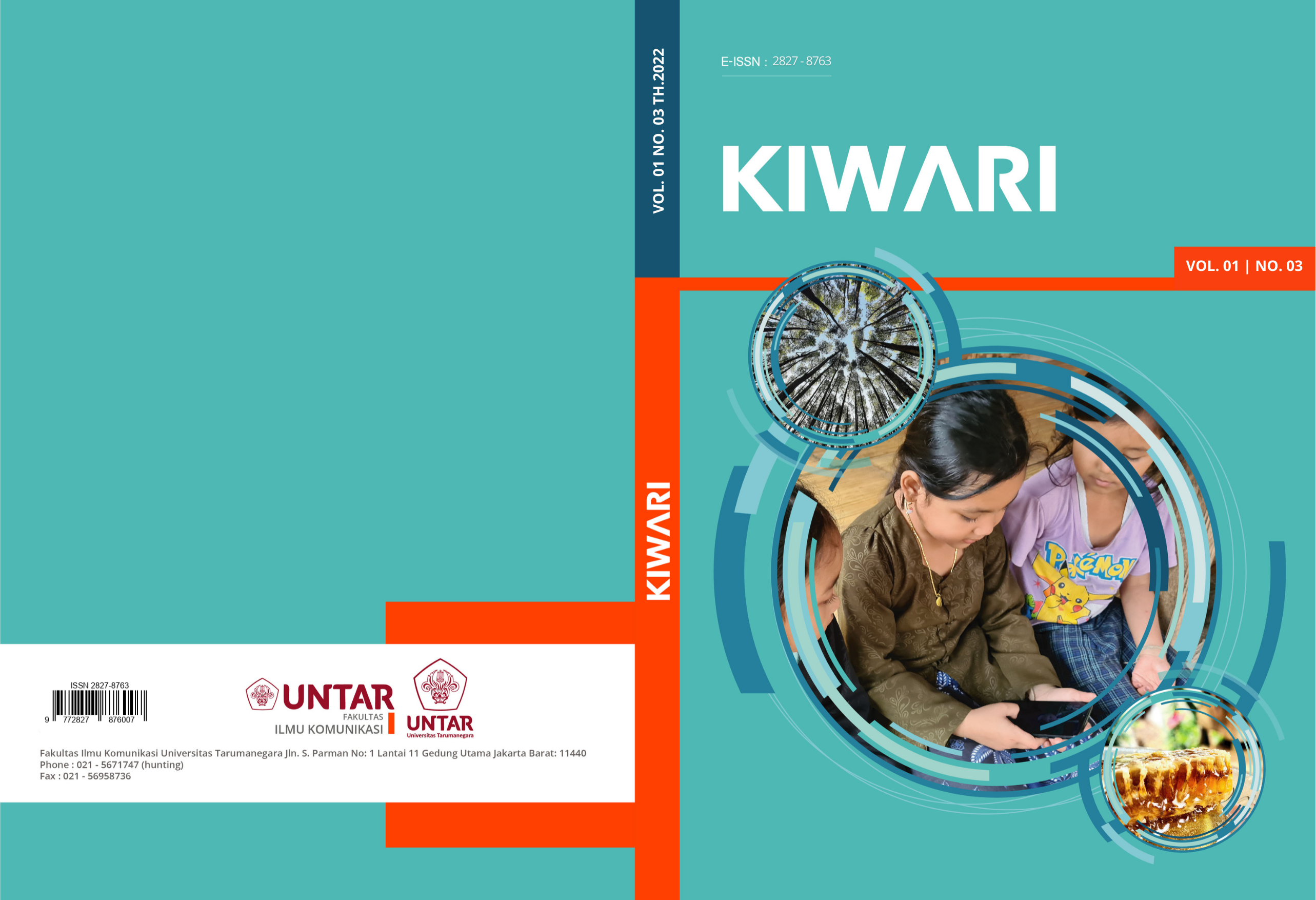Cara Hoaks Memengaruhi Opini Publik Mahasiswa Fikom Untar Angkatan 2018 dalam Protokol Covid-19
Main Article Content
Abstract
Technological developments had made information easier to create and to obtain. Fake news or known as hoaxes are increasing rapidly as a consequence of the technological development. The spread of the SARS N-CoV2 virus or known as COVID-19 shook the world and made almost the entire community falls into panic. Health protocols are also implemented in the hope to suppress the spread of the COVID-19 virus. Protocols and pandemics bring economic and social pressures that trigger public panic. This panic will increase the need for information about COVID-19 in a very short time. The proliferation of hoaxes around COVID-19 and health protocols is the result of the increasing need for this information stemming from the fear of the public, moreover the effect will be stronger if more and more people get exposure from media that contains the contents of the said hoax. This study aims to determine the relationship between hoaxes and public opinion with simple explanations that are easily understood by the general public, but have reliable data. To achieve this goal, the researchers chose the topic of COVID-19 health protocols and Fikom UNTAR’s batch of 2018 students as the subjects of this study. The result is that content that is indicated as a “hoax” affects the emotions of the reader and it will encourage him to look for information that is commensurate with what they find to strengthen their opinion, and continue to expose himself with those informations.
Perkembangan teknologi telah membuat informasi semakin mudah dibuat dan didapat. Berita bohong atau yang dikenal dengan hoaks semakin menjamur sebagai konsekuensi dari perkembangan teknologi tersebut. Penyebaran virus SARS N-CoV2 atau yang dikenal sebagai COVID-19 mengguncang dunia dan membuat hampir seluruh masyarakat panik. Protokol kesehatan pun dijalankan guna menekan penyebaran virus COVID-19. Protokol dan pandemi mendatangkan tekanan ekonomi dan sosial yang memicu kepanikan masyarakat. Kepanikan ini nantinya meningkatkan kebutuhan akan informasi seputar COVID-19 dalam waktu yang sangat singkat. Menjamurnya hoaks seputar COVID-19 dan protokol kesehatan adalah akibat dari meningkatnya kebutuhan akan informasi ini yang berasal dari ketakutan akan masyarakat, apalagi pengaruhnya akan semakin kuat apabila seseorang semakin banyak seseorang mendapatkan paparan dari media yang memuat konten hoaks. Penelitian ini bertujuan untuk mengetahui hubungan hoaks dan opini publik dengan penjelasan yang sederhana dan mudah dimengerti oleh khalayak umum, namun memiliki data yang dapat dipertanggungjawabkan. Untuk mencapai tujuan ini, peneliti memilih topik protokol kesehatan COVID-19 dan memilih mahasiswa FIKOM UNTAR 2018 sebagai subjek dari penelitian ini. Hasilnya adalah konten terindikasikan sebagai “hoaks” memengaruhi emosi dari pembacanya dan itu akan mendorongnya untuk mencari info yang sepadan dengan apa yang ditemukan untuk memperkuat opininya, dan terus menerpa dirinya dengan informasi tersebut.
Article Details
Section

This work is licensed under a Creative Commons Attribution-NonCommercial-ShareAlike 4.0 International License.
This work is licensed under a Prologia Creative Commons Attribution-ShareAlike 4.0 International License.References
Alkatiri, Bin Muhammad, A., NADIAH, Z., & NASUTION, A. N. S. (2020). Opini Publik Terhadap Penerapan New Normal Di Media Sosial Twitter. CoverAge: Journal of Strategic Communication, 11(1), 19–26. https://doi.org/10.35814/coverage.v11i1.1728
Loisa, R., Susanto, E. H., Junaidi, A., & Loekman, F. (2019). Media Siber, Aparat, Dan Pemberitaan Keberagaman. Jurnal ASPIKOM, 3(6), 1243. https://doi.org/10.24329/aspikom.v3i6.434
Rawung, Dede Trinovie. (2020). Bahan Ajar Diklat Statistisi Ahli BPS Angkatan XXII, Mata Diklat" Metode Penarikan Sampel. Badan Pusat Pendidikan dan Pelatihan Badan Pusat Statistik RI. https://pusdiklat.bps.go.id/diklat/bahan_diklat/BA_2144.pdf (Diakses pada 2 Oktober 2021)
Roy, J., & Junaidi, A. (2020). Pengaruh Terpaan Media Berita Hoax di Instagram terhadap Opini Masyarakat Milenials Akan Sumber Berita. Koneksi, 4(2), 280. https://doi.org/10.24912/kn.v4i2.8138
Triyadi, R. (2013) KEMAMPUAN MATEMATIS DITINJAU DARI PERBEDAAN GENDER. S1 thesis, Universitas Pendidikan Indonesia. http://repository.upi.edu/3283/
Wismasari, D., & Sanyata, S. (2019). Status Identitas Dating Berdasarkan Lapisan Mikrosistem pada Mahasiswa Tahun Pertama Universitas Negeri Yogyakarta. [UNIVERSITAS NEGERI YOGYAKARTA]. https://eprints.uny.ac.id/64310/

